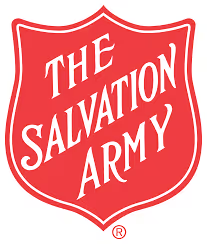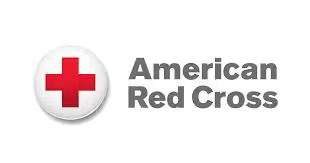






5-Star Valuation Services, Loved by Hundreds
Defensible appraisals for any legal or tax need.
Rather than relying on a single lead appraiser or fixed team, we maintain an extensive network of credentialed specialists, each with deep expertise in particular asset types and valuation purposes. This enables us to match every engagement with the right expert while delivering exceptionally fast turnaround times, even under the most demanding deadlines.
When you require a defensible appraisal you can trust, AppraiseItNow delivers.


Easy & Fast Online Appraisal Process
Our unique model allows us to meet super tight deadlines for tax filings, court dates, internal company project timelines.

Industry-Leading Appraisal Speed
Our unique business model means that we always have a credentialed appraiser available to work on your project, and we can meet obscure and short deadlines for tax filings, court submissions, internal projects, and more. Even if that means preparing your appraisal within 24 hours!

Any Asset Covered
This means that we can appraise any type of item including furniture, artwork, jewelry, business inventory, machinery & equipment, cars, boats, and more!

Servicing Enterprises & Individuals
Our company services anyone from an individual with a single couch to an enterprise needing contents of multiple offices or warehouses appraised.

Defensible for Any Purpose
Frequently Asked
Questions
No Frequently Asked Questions Found.
These donations can take multiple forms, ranging from direct cash contributions to complex asset transfers. Monetary gifts are the most straightforward, typically involving cash, checks, or electronic transfers. However, donors can also contribute non-cash items like clothing, vehicles, securities, and even real estate.
Beyond financial support, charitable donations serve a critical role in addressing societal challenges. They provide essential funding for organizations working in areas such as education, healthcare, environmental conservation, and social justice. By contributing, donors become active participants in creating positive community change, supporting initiatives that might otherwise struggle to secure necessary resources.
The impact of charitable giving extends far beyond immediate financial support. These contributions help nonprofit organizations sustain their operations, develop innovative programs, and expand their reach to serve more individuals and communities in need. Moreover, donations foster a sense of collective responsibility and interconnectedness, demonstrating how individual actions can contribute to broader social progress.
For donors, charitable contributions offer potential tax advantages. Many jurisdictions allow tax deductions for gifts to qualified nonprofit organizations, which can help reduce overall tax liability. However, donors should maintain detailed documentation and, for significant non-cash donations, obtain professional appraisals to ensure proper valuation and tax compliance.
Ultimately, charitable donation represents a meaningful intersection of personal values, social responsibility, and practical financial strategy. Whether through monetary gifts, professional services, or tangible assets, each contribution has the potential to create meaningful, lasting impact.
From a tax perspective, the IRS mandates a qualified appraisal for non-cash contributions exceeding $5,000. This requirement isn't just bureaucratic red tape—it's a formal mechanism ensuring donors can accurately document and substantiate their charitable gifts. Proper documentation protects donors during potential tax reviews and helps maximize potential tax deductions.
Accurate valuation goes far beyond financial benefits. A professional appraisal introduces transparency and credibility to the donation process. Charitable organizations rely on precise documentation to validate contributions, demonstrate impact, and maintain financial accountability. When donors provide comprehensive appraisals, they empower nonprofits to more effectively communicate the tangible value of philanthropic support.
The expertise of a qualified appraiser cannot be overstated. These professionals understand nuanced market conditions, item-specific valuation methodologies, and current regulatory standards. Their specialized knowledge ensures donors receive a comprehensive, defensible assessment that reflects the true worth of their contribution.
Different types of donations—whether artwork, real estate, vehicles, or collectibles—require specific evaluation approaches. A professional appraiser brings specialized knowledge to assess each item's unique characteristics, historical context, and current market dynamics. This meticulous approach guarantees a fair, accurate representation of the donation's value.
By investing in a professional appraisal, donors transform their generosity into a strategic, well-documented contribution that benefits both the charitable organization and their personal financial planning.
These comprehensive evaluations serve multiple critical purposes, ranging from establishing insurance coverage and determining resale potential to facilitating estate planning and providing collectors with authoritative insights into their items' true worth. Recognizing the unique nature of memorabilia—often intertwined with personal narratives and emotional connections—professional appraisals deliver an objective valuation grounded in current market dynamics and expert analysis.
Skilled appraisers employ a meticulous methodology that incorporates sophisticated techniques such as comparative market analysis, rigorous condition assessment, and extensive provenance research. This multifaceted approach ensures a nuanced understanding of each item's intrinsic and market value, considering factors like preservation quality, historical context, and current collector trends.
The appraisal process transcends mere monetary valuation, offering collectors a comprehensive exploration of their cherished items' significance. By leveraging specialized tools, extensive databases, and professional networks, appraisers provide a holistic evaluation that captures both the tangible and intangible qualities that make memorabilia and collectibles truly extraordinary.
Typically, online appraisals rely on comprehensive visual documentation. Collectors are asked to submit high-quality photographs capturing multiple angles of their items, including detailed close-ups of unique features, markings, and condition. Accompanying these images, owners provide critical contextual information about the item's history, provenance, and specific details that could impact its value.
Some appraisal services now offer interactive online sessions through video conferencing platforms, enabling direct communication between the appraiser and collector. This approach allows for real-time examination, immediate questions, and a more dynamic evaluation process. During these virtual consultations, appraisers can request additional perspectives or clarify specific aspects of the collectible.
The online appraisal method is particularly beneficial for collectors with extensive or geographically dispersed collections. It eliminates geographical constraints, reduces logistical challenges, and often accelerates the overall assessment timeline. Whether needed for insurance documentation, estate planning, or personal knowledge, online appraisals represent a modern, efficient approach to understanding the value of cherished collectibles.
Sports memorabilia experts evaluate items like signed jerseys, vintage equipment, and historic game tickets. Their assessments consider an item's condition, athlete significance, and current market demand. Understanding the nuanced world of sports collectibles requires extensive knowledge of athletic history and current collector trends.
Fine art appraisers specialize in evaluating paintings, sculptures, and prints. They analyze artwork through multiple lenses, including artistic provenance, historical context, market conditions, and the reputation of the creator. Their expertise extends beyond visual assessment to understanding complex art market dynamics.
Antique specialists focus on items over a century old, examining furniture, jewelry, and decorative objects. Their evaluations integrate historical craftsmanship, design evolution, material quality, and current collector interests. Detailed knowledge of period-specific manufacturing techniques is crucial to their precise valuations.
Comic book appraisers assess the value of graphic publications by examining factors like edition rarity, character significance, publication condition, and historical importance. They utilize specialized grading systems and stay current with collector market shifts.
Collectible card experts evaluate trading cards across sports, entertainment, and gaming sectors. Their assessments depend on card condition, printing era, character or player popularity, and current market trends. Understanding grading scales and collector preferences is fundamental to their work.
Movie memorabilia professionals assess items like costumes, props, and promotional materials. They evaluate pieces based on film significance, actor prominence, cultural impact, and preservation quality. Their expertise requires deep knowledge of entertainment history and collector markets.
Music memorabilia appraisers specialize in items associated with musicians, including signed records, instruments, and concert posters. They assess value through artist legacy, item rarity, historical significance, and current market demand.
These specialized appraisers represent a sophisticated profession requiring deep subject knowledge, market awareness, and meticulous analytical skills. Their expertise ensures accurate valuation of unique and often irreplaceable collectible items.
In the complex world of collectibles, values can fluctuate dramatically based on market trends, rarity, condition, and historical significance. A professional appraisal offers a precise, current snapshot of an item's worth, enabling owners to make educated choices about preservation, sale, insurance, and potential investment strategies.
Insurance protection represents a key benefit of professional appraisals. Standard homeowner's policies often provide inadequate coverage for unique or high-value collectibles. A detailed, documented appraisal ensures proper insurance coverage, safeguarding your assets against potential loss, theft, or damage.
For individuals involved in estate planning or managing inheritance distributions, appraisals provide an objective foundation for equitable asset allocation. They help executors and heirs understand the precise value of collectible items, facilitating fair and transparent asset division.
Tax considerations also make professional appraisals invaluable. When donating valuable items, a qualified appraisal becomes essential for substantiating tax deduction claims. For donations exceeding specific thresholds, documented valuations are not just recommended – they're legally required.
For collectors considering selling or auctions, an appraisal offers strategic advantages. It provides a realistic pricing framework, enhances negotiation positioning, and attracts serious, informed buyers by establishing credibility and transparency.
Ultimately, a professional memorabilia and collectibles appraisal transcends a simple monetary assessment. It represents a comprehensive approach to understanding, protecting, and maximizing the potential of your valuable collections.
What Makes a Collectible Valuable for Charitable Donation?
When considering collectibles for charitable donations, understanding their value is crucial. Collectibles—from vintage toys and comic books to rare coins and sports memorabilia—have unique characteristics that significantly impact their worth.
Key Factors Determining Collectible Value
Rarity and Demand
- Limited production items typically attract higher interest
- First edition books, autographed merchandise hold premium value
- Current market demand directly influences pricing
- Collector trends can rapidly change market perceptions
Condition Assessment
- Physical preservation is paramount in determining value
- Original packaging and minimal wear significantly increase worth
- Professional grading systems provide standardized condition evaluation
- Higher grade ratings correlate with increased monetary value
Provenance Significance
- Item's historical background critically impacts valuation
- Connections to celebrities or significant events enhance worth
- Authenticated documentation increases credibility
- Verifiable ownership history can dramatically elevate collectible status
Market Trend Dynamics
- Continuous monitoring of sales and auction results is essential
- Media exposure can rapidly transform niche collectibles
- Cultural shifts and nostalgia significantly influence market value
- Emerging collector communities can revive interest in specific items
Understanding these comprehensive valuation factors ensures meaningful and impactful charitable donations, maximizing potential benefit for recipient organizations.
Why Professional Appraisals Matter for Donors
When donating memorabilia and collectibles, understanding their true value is essential for both donors and receiving organizations. Professional appraisals are a critical component in ensuring accurate assessment and valuation of donated items.
Key Benefits of Professional Appraisals for Charitable Donations
Tax Deduction Compliance
- Required by IRS for non-cash charitable contributions over specific thresholds
- Provides official documentation to substantiate tax deductions
- Protects donors during potential tax audits
- Helps establish precise fair market value of donated items
Support for Charitable Organizations
- Offers credibility and clear valuation of donated items
- Enables strategic planning for fundraising and auction opportunities
- Provides insights into potential donation utilization
Uncovering Hidden Value
- Reveals nuanced aspects of collectibles beyond surface-level assessment
- Identifies historical significance and rarity
- Evaluates condition factors affecting item value
- Highlights potential value donors might not recognize
Ensuring Ethical Standards
- Promotes transparency in the donation process
- Protects interests of both donors and charitable organizations
- Establishes accountability in charitable giving
Professional appraisals are an indispensable part of the charitable donation process, providing comprehensive protection and value recognition for all parties involved.
Most Sought-After Memorabilia in Charitable Giving
Collecting memorabilia and collectibles is more than just a hobby—it's a powerful way to support charitable causes. By donating highly sought-after items, individuals can make significant financial contributions that benefit both the charity and potentially provide tax advantages for the donor.
Top Categories of Valuable Memorabilia for Charitable Giving
Sports Memorabilia
- Consistently high-value items include:
- Autographed jerseys from legendary athletes
- Limited-edition trading cards
- Game-used equipment from iconic sports moments
- Particularly valuable when linked to significant sporting achievements or legendary players
Pop Culture Collectibles
- Prime donation items encompass:
- Vintage toys from popular franchises
- Rare comic books
- Signed photos of cultural icons
- Limited edition collectibles from blockbuster movies or TV shows
Historical Artifacts
- Highly prized items include:
- Historically significant documents
- Military uniforms
- Period-specific equipment
- Artifacts that provide unique insights into pivotal moments in history
Numismatic and Philatelic Collectibles
- Valuable donation options:
- Rare coins with unique mint marks
- Vintage stamps with historical significance
- Limited edition or error-print collectible currency
Strategic donation of memorabilia allows collectors to support meaningful causes while preserving important cultural and historical artifacts. Each donated item has the potential to generate crucial funding for charitable organizations and create lasting educational opportunities.
How Your Appraisal Impacts Charitable Contribution Deductions
Understanding Appraisals for Charitable Donation Tax Benefits
Donating memorabilia and collectibles can provide significant tax advantages when approached strategically. The IRS allows donors to claim deductions for tangible items contributed to qualified charitable organizations, but these deductions require precise documentation and professional validation.
Key Considerations for Charitable Donation Appraisals
- Fair Market Value Determination
The IRS defines fair market value as the price an item would fetch between a willing buyer and seller. A professional appraisal ensures your claimed value meets this critical standard, maintaining compliance and maximizing potential tax benefits.
- Comprehensive Documentation
A professional appraisal report serves as essential documentation for tax filings. It provides:
- Detailed item descriptions
- High-quality photographs
- Authenticated value assessments
- Credible evidence supporting your donation's claimed value
- Market Trend Insights
Professional appraisals offer more than tax documentation. They help donors understand:
- Current collectibles market dynamics
- Potential future value trajectories
- Industry-specific valuation trends
- Audit Protection
A meticulously prepared appraisal provides critical protection during potential IRS reviews. Comprehensive documentation can:
- Substantiate claimed donation values
- Mitigate potential disputes
- Demonstrate good-faith valuation efforts
Strategic Donation Considerations
Successful charitable donations of memorabilia and collectibles require careful planning. By obtaining a professional appraisal, donors can confidently maximize their tax benefits while supporting meaningful charitable causes.
Remember that each donation is unique, and consulting with tax professionals and certified appraisers can provide personalized guidance tailored to your specific situation.
The Step-by-Step Journey of a Professional Appraisal
The Professional Appraisal Process for Memorabilia and Collectibles
Appraising memorabilia and collectibles for charitable donation requires a meticulous, systematic approach that ensures accuracy, compliance, and integrity throughout the valuation process.
1. Initial Consultation: Understanding the Context
- Discuss donor's specific intentions and donation goals
- Examine the type and nature of collectible items
- Gather initial insights about item history and significance
- Establish preliminary understanding of potential value
2. Comprehensive Documentation Review
- Analyze existing documentation thoroughly
- Review historical records, including:
- Purchase receipts
- Previous appraisal documents
- Provenance records
- Original photographs or supporting images
- Verify authenticity through supporting materials
3. Detailed Condition Assessment
- Perform extensive physical examination of each item
- Evaluate overall condition with professional expertise
- Document:
- Signs of wear
- Potential damage
- Restoration history
- Preservation quality
- Note factors impacting potential market value
4. Comprehensive Market Research
- Conduct in-depth analysis of current market trends
- Review recent comparable sales across multiple platforms:
- Specialty auctions
- Dealer listings
- Online marketplaces
- Collector databases
- Assess current demand and potential future value
5. Professional Valuation Report Compilation
- Synthesize all gathered research and assessments
- Create comprehensive valuation report including:
- Detailed item descriptions
- Methodology explanation
- Precise market value estimations
- Supporting documentation
- Ensure compliance with professional appraisal standards
6. Final Review and Delivery
- Conduct rigorous internal review of valuation report
- Verify accuracy of all documented information
- Prepare final documentation for donor
- Ensure compliance with IRS donation reporting requirements
This systematic approach guarantees a thorough, professional evaluation that supports both the donor's charitable intentions and maintains the highest standards of appraisal integrity.
Finding the Right Appraiser: Credentials That Count
Selecting the Right Appraiser for Charitable Donations
Choosing a qualified appraiser for memorabilia and collectibles is a critical step in the charitable donation process. The right professional ensures accurate valuation, proper documentation, and compliance with important regulations.
Key Credentials to Seek
- Professional Designations: Look for recognized certifications such as:
- Certified Appraiser (CGA)
- Accredited Member (AMA) from International Society of Appraisers (ISA)
- Certified Member (CMA) from Appraisers Association of America (AAA)
Critical Evaluation Factors
- Specialized Experience
Prioritize appraisers with expertise in specific types of memorabilia, such as:
- Sports memorabilia
- Vintage collectibles
- Fine art
- Rare artifacts
- Technical Expertise
Verify the appraiser's comprehensive understanding of:
- Current market trends
- Precise valuation methodologies
- Detailed item authentication processes
- Regulatory Compliance
Ensure the appraiser demonstrates:
- In-depth knowledge of IRS donation guidelines
- Ability to prepare thorough documentation
- Understanding of tax reporting requirements
Vetting Your Potential Appraiser
- Request and check professional references
- Review client testimonials and online feedback
- Confirm professional memberships and current certifications
- Discuss their specific experience with similar collections
A meticulous approach to selecting an appraiser ensures your charitable donation is accurately valued, properly documented, and maximizes potential benefits for both you and the receiving organization.
Navigating Tax Documentation for Your Donation
When donating memorabilia and collectibles, understanding the tax documentation process is critical to maximizing the benefits of your charitable contribution. Proper documentation ensures compliance with tax regulations and enhances the legitimacy of your donation in the eyes of the Internal Revenue Service (IRS).
Key Steps for Tax Documentation
1. Determine the Value of Your Donation
Before making a charitable donation, appraising the value of your memorabilia or collectibles is crucial. The IRS requires specific documentation for donations, particularly for items valued over $5,000:
- Obtain a formal appraisal from a qualified professional
- Ensure the appraisal adheres to IRS guidelines
- Receive an accurate fair market value assessment
2. Collect Comprehensive Documentation
Maintain detailed records to support your donation, including:
- Professional appraisal report
- High-quality photographs of donated items
- Original purchase receipts
- Correspondence related to the donation
- Written acknowledgment from the charitable organization
3. Understand IRS Guidelines
Familiarize yourself with key tax regulations:
- Review IRS Publication 526 thoroughly
- Understand acceptable donation types
- Learn specific documentation requirements
- Know valuation methods for different types of collectibles
4. Proper Tax Filing
When reporting your donation, ensure accuracy by including:
- Exact date of donation
- Precise fair market value
- Complete name of receiving charitable organization
- Form 8283 for donations exceeding $500
Meticulous preparation of tax documentation allows you to navigate the donation process efficiently, ensuring your generosity is appropriately recognized and potentially tax-deductible.
Decoding Appraisal Reports: A Donor's Guide
When donating memorabilia and collectibles to charities, understanding appraisal reports is crucial for both the donor and the organization receiving the item. Appraisal reports serve as a detailed documentation of an item's value, established by a qualified appraiser with expertise in collectibles and memorabilia.
Key Elements of an Appraisal Report
Identification of the Item
Each report begins with a comprehensive description, including the type of memorabilia or collectible, its age, condition, and provenance. Provenance, or the item's history and origin, can significantly impact its value.
Market Analysis
A thorough appraisal includes market analysis, assessing recent sales of similar items. This is essential for determining fair market value, which reflects what a buyer might reasonably pay for the item under typical sale conditions.
Value Conclusion
The appraisal culminates in a value conclusion, quantifying what the item is worth. This figure is particularly important for donors regarding tax deductions as the IRS requires credible documentation to substantiate claimed values on tax returns.
Standard of Value
The appraiser must specify the standard of value used, typically fair market value, which differs from insurance value or liquidation value. Understanding this distinction helps donors have realistic expectations of their item's worth.
Appraiser Credentials
The report should include information about the appraiser's qualifications, experience, and any relevant certifications. Donors can feel more confident when the appraisal comes from an accredited professional.
Why Appraisal Matters
Having a well-documented appraisal not only supports the donor's charitable intent but also aids charities in handling items responsibly. It enables them to more effectively manage their collections and provide potential donors with reassurance that their contributions are valued correctly.
By familiarizing oneself with the specifics of an appraisal report, donors can enhance their philanthropic endeavors while ensuring compliance with relevant tax regulations.
Ensuring Integrity in Collectibles Valuation
Navigating Collectibles Valuation with Precision and Integrity
Collectibles and memorabilia represent more than just physical objects—they embody historical significance, personal memories, and potential charitable impact. Accurate valuation requires a meticulous approach that balances technical expertise with professional standards.
Key Components of Professional Collectibles Appraisal
- Specialized Expertise: Different collectible categories demand unique assessment skills, from sports memorabilia to vintage art and rare coins
- Comprehensive Market Analysis: Understanding current market trends, historical context, and item-specific nuances
- Rigorous Authentication Process: Verifying item legitimacy and provenance to ensure accurate valuation
Critical Valuation Considerations
- Detailed Research
- Extensive item history investigation
- Comparative market value assessment
- Current demand evaluation
- Condition Assessment
- Comprehensive physical examination
- Analysis of preservation state
- Impact of wear and restoration on value
- Professional Documentation
- Comprehensive written valuation report
- Support for potential tax documentation
- Transparent record-keeping
Ethical Standards in Appraisal
Professional appraisers maintain strict ethical guidelines that prioritize:
- Complete objectivity
- Unbiased valuation methods
- Transparent assessment processes
- Protecting donor and recipient interests
By embracing these comprehensive valuation principles, donors can confidently transform their cherished collectibles into meaningful charitable contributions, ensuring both financial accuracy and ethical integrity.
Common Questions About Memorabilia Donations
Navigating the world of memorabilia donations can be both rewarding and complex. Understanding the nuances of appraisals for charitable purposes is essential to optimize your giving and ensure compliance with tax regulations.
Types of Memorabilia Eligible for Donation
Memorabilia encompasses a wide range of collectible items, including:
- Sports collectibles (signed jerseys, game-used equipment)
- Historical artifacts
- Cultural items
- Entertainment memorabilia (movie posters, signed photographs)
- Rare coins
- Vintage toys and collectibles
Understanding Appraisal Requirements
Why Appraisals Matter
An appraisal serves critical purposes in charitable donations:
- Provides a professional estimate of fair market value
- Enables accurate tax deduction calculations
- Ensures compliance with IRS regulations
- Protects both donor and receiving charity
Selecting the Right Appraiser
When choosing an appraiser, consider the following key factors:
- Specialization in specific memorabilia type
- Credentials from recognized appraisal organizations
- Proven field experience
- Ability to provide comprehensive documentation
Essential Documentation
A qualified appraisal report should include:
- Detailed item description
- Estimated fair market value
- Appraisal purpose
- Appraiser's professional qualifications
- Supporting documentation (receipts, provenance)
Donation Benefits
Donating memorabilia offers significant advantages:
- Potential tax benefits
- Support for charitable organizations
- Preservation of cultural and historical items
- Meaningful way to share valuable collectibles
Strategic Approaches to Donating Collectibles
When donating memorabilia and collectibles, a strategic approach can maximize both philanthropic impact and potential tax benefits. Consider these key strategies to ensure a well-planned donation:
1. Understand Value and Marketability
Before donating, get a comprehensive understanding of your collectibles' value through a professional appraisal. This assessment should consider:
- Item condition
- Rarity
- Current market demand
A precise valuation not only highlights the donation's significance but also provides critical documentation for tax reporting purposes.
2. Select the Right Charitable Organization
Choosing an appropriate charity requires careful consideration. Look for organizations that:
- Align with your personal values
- Have experience handling collectibles
- Support missions relevant to your donation's nature
- Can effectively utilize or benefit from your specific items
3. Maintain Comprehensive Documentation
Rigorous documentation is crucial for successful charitable donations. Compile and preserve:
- Professional appraisal reports
- Detailed item photographs
- Comprehensive item descriptions
- Donation receipts
These records substantiate the donation's value and help the receiving organization manage the collectibles effectively.
4. Understand Tax Implications
Collectible donations can offer significant tax advantages. Key considerations include:
- Fair market value deductions from taxable income
- IRS regulations specific to collectible donations
- Potential limitations on deduction amounts
Consulting a tax professional can help you navigate these complexities and optimize your tax strategy.
5. Evaluate Donation Methods
Multiple donation approaches exist, each with unique benefits:
- Direct outright gifts
- Donor-advised funds
- Phased donation strategies
Select a method that best aligns with your philanthropic goals and financial planning.
By implementing these strategic approaches, you can create a meaningful donation that benefits both the charitable organization and your personal financial objectives.
Transforming Your Collectibles into Meaningful Contributions
Charitable donations can have a profound impact, and when it comes to memorabilia and collectibles, understanding their value is essential to maximizing your contribution. Appraising these items not only provides clarity on their worth but also ensures that your generosity is accurately reflected in tax deductions and organizational records.
Types of Collectible Donations
Collectibles often encompass a wide range of valuable items, including:
- Vintage toys
- Sports memorabilia
- Fine artwork
- Rare coins and currency
- Antique jewelry
- Historical artifacts
Key Factors Influencing Collectible Value
Market Dynamics
The value of collectibles is shaped by several critical elements:
- Market Demand: Desirability can change over time, influenced by:
- Current cultural trends
- Significant historical events
- Collector interest
- Condition: Physical state is crucial, with grading including:
- Mint condition
- Near mint
- Good condition
- Moderate wear
- Provenance: Documented history can dramatically impact value
- Ownership lineage
- Previous sales records
- Connection to notable figures or events
- Rarity: Unique or limited-edition items typically command higher values
The Benefits of Professional Appraisal
Obtaining a professional appraisal offers multiple advantages:
- Precise monetary valuation
- Formal documentation for tax purposes
- Compliance with IRS regulations
- Verification of item authenticity
Beyond Financial Value
Donating collectibles transcends mere financial transaction. It represents a meaningful way to:
- Support causes you care about
- Preserve items with personal significance
- Create a lasting legacy
- Share your passion with others
By transforming your collectibles into meaningful contributions, you create a bridge between personal passion and philanthropic spirit. Your donation becomes more than an object—it becomes a testament to generosity and shared human experience.
View all Locations
APPRAISEITNOW APPRAISERS ARE BEST-IN-CLASS & CREDENTIALED BY LEADING APPRAISAL ORGANIZATIONS LIKE THE ISA, ASA, & MORE.








.svg)








